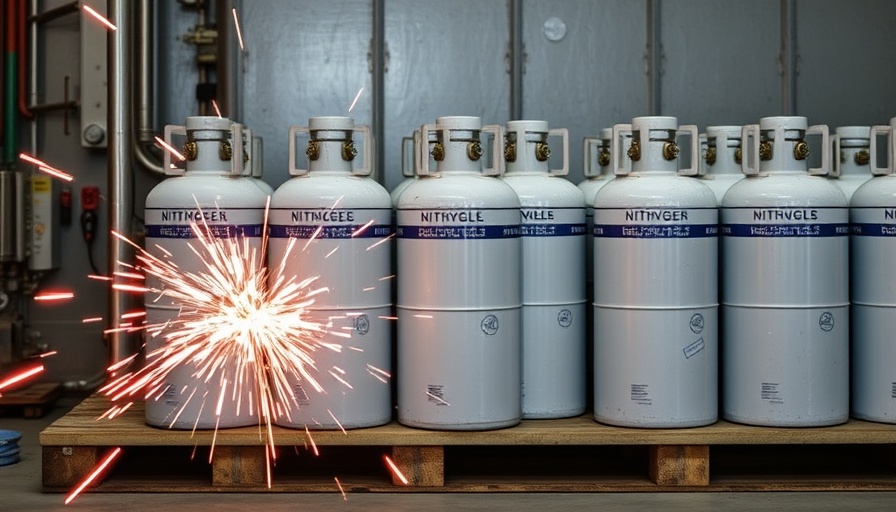
Rising Safety Concerns: The Dangers of High-Pressure Nitrogen Cylinders
Recent incidents on offshore oil and gas rigs have underscored the critical importance of proper handling and maintenance of high-pressure nitrogen cylinders. A safety alert issued by the Bureau of Safety and Environmental Enforcement (BSEE) echoes a grave call to action for operators and contractors in this high-risk industry. Following an investigation into a nitrogen cylinder rupture that led to minor injuries among workers, the alert serves as a stark reminder of the potential hazards posed by corrosive damage to equipment.
Understanding the Risks of Corrosion and Neglect
The BSEE's investigation revealed that the rupture was primarily caused by corrosive wall loss exacerbated by environmental conditions and systemic neglect in maintenance protocols. Such insights highlight the need for a robust safety culture that prioritizes routine inspections and adherence to regulatory requirements. The failure to regularly inspect and maintain these cylinders can lead to catastrophic outcomes, as evidenced by the injuries sustained in this recent incident.
Implementing Effective Safety Measures
To ensure safety while handling nitrogen cylinders, BSEE outlines critical recommendations for operators. These include:
- Proper labeling and marking of all cylinders to meet U.S. Department of Transportation standards.
- Verification of recertification status and documentation for each cylinder before use.
- Regular training for all personnel on recognizing early signs of corrosion and unsafe handling practices.
- Establishing a culture of diligence and safety in all cylinder management procedures.
Fostering a Culture of Safety and Compliance
Business owners, facility managers, and contractors must commit to fostering a workplace culture that prioritizes safety at every level. By investing in comprehensive training and creating transparent communication channels for reporting safety concerns, companies can mitigate risks. Promoting regular meetings to discuss safety procedures and encourage employee input can also cultivate a team-oriented approach towards safety.
Looking Ahead: A Safer Future for Offshore Workers
The imperative for enhanced safety protocols also points to the long-term benefits of a proactive approach to workplace safety. Ensuring that safety measures are an integral part of daily operations not only reduces the likelihood of accidents but also positively impacts business productivity and morale. Companies that prioritize safety are likely to see improved employee well-being and reduced costs associated with workplace injuries.
Conclusion: Take Action for Safety
The recent safety alert regarding nitrogen cylinders is a crucial reminder of the potential hazards in the workplace. Business leaders are called upon to take immediate action—review existing safety protocols and ensure training is frequent and comprehensive. When safety is prioritized, the well-being of workers and the integrity of operations are significantly enhanced. Make your workplace safer today by committing to these essential practices and fostering a culture of safety.
 Add Row
Add Row  Add
Add 




Write A Comment